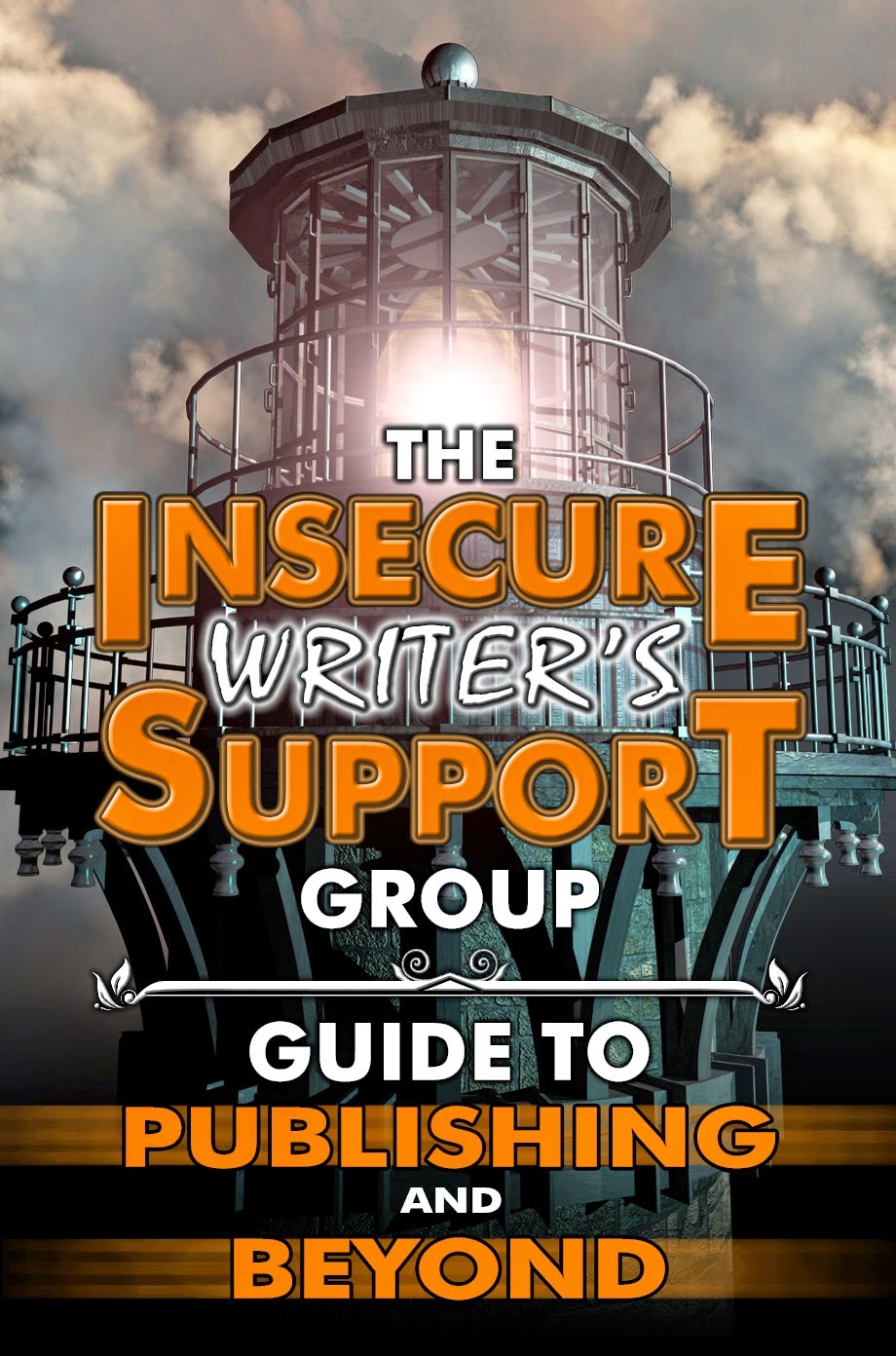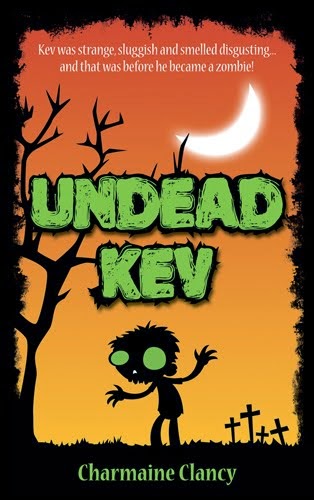The travails and adventures of your characters should
have more than a superficial effect on the reader. Ideally, the impact should be
somewhere between enthralling and devastating.
But how do you convert words on a page to tears in eyes, lumps
in throats or hearts in mouths?
There are two basic ways to transfer emotion from page to
reader: sympathetic and empathetic.
Sympathetic
When we see a display of emotion, the emotion becomes contagious.
How much is dependent on various factors, but the simple physical sign of an
emotion is enough to create sympathetic emotions in the observer.
So, by and large, if you’re in a crowd that’s laughing
and upbeat, you will feel likewise. If you’re in a room full of misery guts,
you’re going to be on a downer. And if someone is crying their eyes out, even
if you have no idea why they’re crying, you will feel upset too.
This means when you write a scene where you describe
someone is a particular emotional state, there is a natural instinct for the
reader to relate. Big fat tears rolling down cheeks, snot dripping from nose,
fists clenches in distress and sobs being smothered... you get the idea.
Now, this is a very superficial way to convey emotion.
It’s clear what the emotion is and a skilled writer can evoke it very
viscerally, but if it is purely put in these externalised terms how strongly it
hits the reader will be modified by lots of other factors: the mood of the
reader, their general sensitivity, their relationship with the character, the
appropriateness of the emotion to the situation.
In short, it is easy to lose the reader’s engagement, and
this is compounded by things like clichés, melodrama and context (sixteen year
olds breaking up may seem a big deal to teenagers, not so much to 40 year
olds).
This all leads to the conclusion that sympathetic emotion
is best used as a way to emphasise and guide the reader. To be honest it’s pure
manipulation (and if it’s only that, the reader can end up being resentful),
but if used in conjunction with deeper emotions, it can work very effectively.
Empathetic
If you are close to someone, or if you’ve experienced
similar situations to the one they’re now going through, then the way you react
to their turmoil can be very much deeper than otherwise. Feeling someone’s pain
or joy, in the sense that you experience it as though you were directly
involved, is very powerful.
When it comes to writing, it can sometimes feel that if
you make the situation clear, the emotions should be self-evident. If Mary
loses her child, isn’t it obvious how she feels? If Jane finds out her husband
is cheating on her with her best friend, do you really need to spell out her
reaction?
And the answer is it should be entirely obvious how Mary
or Jane feel... if you happen to be a close friend of theirs.
If someone tells you a girl at their work had a
miscarriage, you might think that it’s terrible and be very sorry for her. If
your sister calls you up and tells you she’s had a miscarriage, it’s going to
feel like someone just kicked you in the stomach.
You have to be connected to people to feel what they
feel. And in fiction the key to that is what characters think and do, and
specifically what that tells you about them as people. Knowing characters lets
readers relate to them.
That doesn’t mean going into intense detail about their
likes and dislikes, where they went to school or how they decorated their
bedroom. If you know someone well, you will end up knowing all the little insignificant
details about them, but it doesn’t work in reverse. Knowing all the little
insignificant details about them doesn’t mean you know them well.
As a writer you have to be much more specific. In fact
you have to be devious.
If you want the reader to experience what Jane feels when
she discovers her husband cheating, then you have be aware that that’s what you
want. And well before you get to that point, you need to establish a
counterpoint to that emotion.
If in the early part of the story, Jane is flirting with
guys, sleeping around, or treating her hubby like crap, when she finds out he’s
cheating on her, will you feel upset for her?
On the other hand, if she’s shopping for his birthday
gift, cooking him his favourite meal, feeling sorry for her friend who’s been
dumped, then her finding out is all the more devastating.








































































































29 comments:
Think I need to work more on the sympathy thing...
This is a big reminder to me that I should purchase "The Emotion Thesaurus". I read the free preview, and I liked the examples that the ladies who wrote the book gave in making emotions translate to the page.
@alex-In life?
@Michael-they do seem to have the market cornered.
This emotion stuff is tough. You have to keep so many things in mind....
-visceral response
-contextual situation
-sympathetic setting
-real characters
-subtle influences
Now I have to create
-counterpoint
*runs away screaming*
@Mac-come back!
I find it tough to do well in my writing. The tips will help.
@Rusty-I think it helps to be very specific about the emotion. Too broad and it can start getting vague.
That looks like Lana Del Rey in the last picture...
...probably not.
I have a hard time with effectively writing emotion. Thanks for the post--this will definitely come in handy.
great points to pin down on both sides, I never know if im conveying emotions in the right way...
I find it very easy to put emotion into what i'm writing when I internalize it myself. Is it weird that i sometimes cry when my characters experience something horrific? LOL
@CZ-can't really tell without hearing her sing. If it's horribly off key, definitely her.
@GE-I'm English, the idea of intentionally ramping up emotion seems very wrong to me. I'm all for a nice cup of tea and everyone calming down.
@sjp-yvw
@Glori-I often feel like crying after I read my first draft, but that's another story.
Sometimes I struggle to understand empathy doesn't work both ways when I'm reading. Sure, I can feel Jane's pain when she finds out hubby's a cheat, but why doesn't she feel my need for us to murder the scumbag? Maybe I do need to work on the empathy thing a bit more :P
To me, as both a reader and a writer, I tend to priorize the emotional range. A sad and gloomy novel that's always sad and gloomy has something clunky about it. It doesn't really work. For characters who have known (and who have displayed) happiness, for example, the feeling of loss and grieving is even more gut wrenching.
@Charmaine-ah, interactive fiction. It can only be a matter of time.
@Ben-yeah, the greater the shift, the greater the impact.
I need to work a lot on the sympathy factor in my stories. Thanks for the wonderful examples Mooderino.
Great post as always Mood.
Ah, emotion... what would we all do without tugging at our readers heartstrings? It is such a mind game, isn't it?
Setting any stage is ALWAYS important, but the subtle nuances for emotion can run the gamut. So, yes, it is necessary to build up to the emotion.
Excellent examples, Mood.
Those are great examples - the sibling analogy and the one at the end about showing the character, and thereby revealing their emotions.
I've got to remember this is I go through my edits!
I'm an emotional reader (keep the kleenex handy) so I can use my own reactions somewhat as a guideline. If I don't react emotionally to what my characters are going through, there's no way anyone else will.
I have never really thought about how to convey emotions in my writing, but like the above poster, I do feel them - I cry, laugh, lust, even feel hungry for them. I'm not sure about that last one, but it appears my readers feel the same only more so. They say my books are 'darker' than I think they are.
A very well written piece on writing, Moody.
Marj.
Another great post. Having my readers really 'feel' what my main characters are going through was a big focus of mine when I wrote The Big Smoke. Early indications are that I've been reasonably successful with that but time will tell if the objective public agree. :-)
@Rachna-yvw.
@Michael-it's tricky finding the balance between assuming its obvious and becoming melodramatic. Comes down to personal judgemment at that point.
@Deniz-thanks.
@LD-I'm the opposite (the curse of being English) so I have to really think about the emotional stuff.
@Marj-thank you.
@Cally-true, once it's out there, it's out there.
loved this! empathy comes naturally to the reader when they've become so invested in the character that the character has become a friend.:)
Nutschell
www.thewritingnut.com
Ah, the power of contrast! Another example of how it can really pull a punch
"You have to be connected to people to feel what they feel."
I think this is great advice, Moody. Another thing I've realized is that if the emotion is fake it won't touch the viewer/reader. In other words, if it doesn't feel "authentic," the audience doesn't share it. I used to watch Latin American soap operas growing up (more as a habit than anything). However, I never cried when something bad happened to the protagonist. I think one of the reasons is that heroines in soap operas are well-known to cry over the slightest provocation. Another thing is that melodrama is very predictable and we see bad things coming a mile away. So in the lack of surprise there is also indifference in the viewer (the same thing happens after you've read/seen a few Nicholas Sparks' novels). In fact, when yet another bad thing happens in soap operas, one often gets annoyed (at the contrivance/cliche) rather than sad. I remember that the times I've cried in soap operas have been at the unexpected death of a beloved character (hey, some soap operas are better written than others!)
@nutschell-I think it can give a deeper understanding of the antagonist, too.
@Margo-contrast really is quite a powerful tool.
@Lorena-I think it's possible to pull off the emotional thing in the most fake situations sometimes. There have been adverts that have a brought tears to my eyes. If the set up is right it can trigger real emotion (for half a second).
Excellent post. Thanks for the creative booster shot.
@Lisa-The doctor is in!
A post that sums up what we need to add in our writing to make others wemotions pour out! very well writtten :)